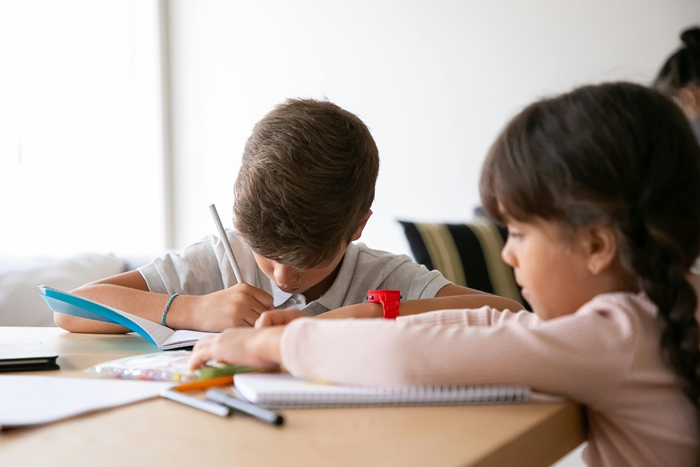The world of education is evolving rapidly, and students are no longer just passive recipients of information. Especially in the CBSE curriculum, which emphasises conceptual understanding and analytical thinking, it is vital to equip students with the ability to learn independently. Self-directed learning is the ability to take initiative, set goals, find resources, and evaluate...
BlogHow to Foster Self-Directed Learning in CBSE Students

The world of education is evolving rapidly, and students are no longer just passive recipients of information. Especially in the CBSE curriculum, which emphasises conceptual understanding and analytical thinking, it is vital to equip students with the ability to learn independently. Self-directed learning is the ability to take initiative, set goals, find resources, and evaluate one’s own progress. When nurtured in the right way, it empowers students to become responsible, confident, and curious learners for life.
Start with Setting Clear, Achievable Goals
To guide CBSE students towards self-directed learning, helping them set their own academic goals is an effective starting point. These goals should be realistic, measurable, and aligned with their syllabus. Whether it’s improving in a subject or completing a project ahead of time, setting small milestones gives students a sense of direction. When they begin to see progress based on their own efforts, it boosts their motivation and makes learning more meaningful.
Encourage Ownership of Learning
One of the core principles of self-directed learning is ownership. Students must understand that they are responsible for their progress. This does not mean leaving them entirely on their own, but giving them the space to make decisions. For example, allowing them to choose the sequence in which they study different subjects or how they wish to approach a revision plan can instil a sense of responsibility. Parents and teachers should act as guides, not controllers, creating an environment where questions are welcomed and mistakes are part of learning.
Create a Supportive Environment at Home and School
A learning environment that promotes independence also needs to be supportive. Both at home and school, students should feel safe to express their thoughts and explore different methods of studying. Whether it is using mind maps, flashcards, or creating their own summaries, the freedom to choose how they revise enhances their engagement. Teachers can encourage open-ended assignments that allow room for creativity and personal interpretation. At home, parents can support by being curious listeners and encouraging reflection rather than pressuring for results.
Integrate Technology for Smarter Learning
CBSE students today have access to a wide range of digital tools that can support independent learning. From interactive educational platforms to subject-specific mobile apps, technology can be used smartly to make learning engaging and accessible. However, it is important to monitor usage to avoid overdependence or distractions. Encouraging students to use videos, quizzes, or simulations to explore complex topics can make abstract concepts easier to understand and retain.
Build Time Management Skills
Time management is key to successful self-directed learning. Students need to learn how to plan their study schedules, balance school assignments with personal revision, and prepare for exams. Introducing a simple weekly planner where they can set their own goals, track progress, and adjust strategies helps them become more organised. When students learn how to prioritise and make time-bound plans, it improves not only academic performance but also life skills.
Foster a Habit of Reflection
Self-assessment and reflection help students understand what works for them and what doesn’t. After every test or assignment, encourage them to look beyond marks and ask questions like “What did I do well?”, “Where can I improve?”, and “What strategy worked best for me?” Journaling or maintaining a learning diary is also a useful habit that promotes awareness and continuous improvement. It helps students connect with their strengths, identify areas of growth, and gradually become self-reliant learners.
Provide Constructive Feedback and Encouragement
While promoting independence, feedback remains essential. Teachers should offer constructive inputs that focus on effort and progress rather than just outcomes. Positive reinforcement boosts confidence, while thoughtful guidance helps students realign their approach when needed. Parents can appreciate consistency and persistence, helping children stay motivated even when results are not immediate.
Fostering self-directed learning in CBSE students is not about giving them more work, but about giving them the tools and mindset to approach learning with curiosity and independence. By encouraging goal-setting, promoting responsibility, integrating technology, and offering a supportive space, both at school and home, we prepare students not just for exams but for life. When students take charge of their learning, they develop into lifelong learners—adaptable, self-aware, and ready to face the ever-changing world with confidence.